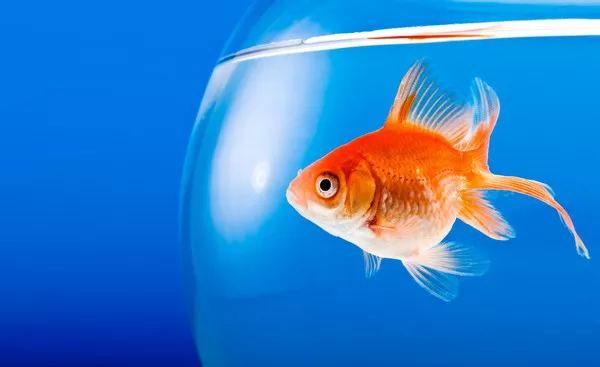Betta fish, also known as Siamese fighting fish, are prized for their stunning colors, flowing fins, and engaging personalities. While these fish are hardy and adaptable, they are not immune to stress. Stress can adversely affect a betta’s health and well-being, potentially leading to various health issues. As a responsible betta owner, it’s important to recognize the signs of stress in your fish and take proactive measures to address the underlying causes. In this article, we will explore the common indicators of stress in betta fish and offer insights into how to alleviate these stressors for a happy and healthy aquatic companion.
Behavior Changes
One of the most telling signs of a stressed betta fish is changes in behavior. Bettas are known for their active and curious nature, so any noticeable deviations from their usual behavior could be a sign of stress. Look out for the following behavior changes:
Lethargy: If your betta spends an unusual amount of time resting at the bottom of the tank or near the water’s surface, it may be stressed.
Decreased Appetite: A stressed betta may lose interest in eating. If your fish suddenly stops eating or eats significantly less than usual, stress could be a factor.
Aggression: While bettas are known for their aggressive tendencies, excessive aggression or heightened territorial behavior can indicate stress.
Hiding: Bettas often retreat to hiding spots to rest, but if your fish is constantly hiding or attempting to escape the tank, it may be stressed.
Color Changes
Betta fish are renowned for their vibrant colors, and changes in coloration can be indicative of stress:
Fading Colors: A stressed betta might appear paler or duller in color than usual. This can be a sign of discomfort or anxiety.
Darkened Colors: On the other hand, stress can also cause a betta to darken its colors. This response is often triggered by the release of stress hormones.
Loss of Vibrancy: Stressed bettas may lose the vibrancy and intensity of their usual colors, indicating that they are not in their optimal state of health.
Fins and Posture
Examine your betta’s fins and body posture for signs of stress:
Clamped Fins: A stressed betta might clamp its fins tightly against its body, giving it a closed appearance. This can be a defensive response to stressors.
Torn or Ragged Fins: Excessive stress can lead to behaviors like fin-nipping or excessive scratching against tank decorations, resulting in torn or ragged fins.
Sluggish Movements: If your betta appears to be moving slowly or struggling to swim, it could be experiencing physical discomfort due to stress.
Respiratory Changes
Respiratory issues can arise from stress and have visible effects:
Rapid Breathing: Stress can cause a betta to breathe rapidly and noticeably, sometimes leading to gasping at the water’s surface.
Gulping Air: If your betta frequently rises to the surface to gulp air, it might be struggling to get enough oxygen due to stress-related factors.
Environmental Stressors
Identifying and addressing potential environmental stressors is essential for promoting your betta’s well-being:
Inadequate Tank Conditions: Poor water quality, incorrect water temperature, and inadequate tank size can all contribute to stress in bettas. Make sure to maintain clean and properly conditioned water.
Incompatible Tank Mates: Housing bettas with aggressive or incompatible tank mates can lead to stress from constant confrontation.
Lack of Hiding Spots: Bettas benefit from having hiding spots, such as plants or decorations, to retreat to when they need a break from social interaction.
Overly Bright Lights: Excessive light exposure can stress bettas. Provide periods of darkness to mimic their natural day-night cycle.
Measures to Alleviate Stress
If you suspect your betta is stressed, take the following steps to alleviate the issue:
Check Water Quality: Regularly test and maintain water parameters such as temperature, pH, ammonia, nitrite, and nitrate levels to ensure optimal conditions.
Tank Enrichment: Add live or silk plants, decorations, and hiding spots to provide a stimulating and comfortable environment for your betta.
Avoid Overfeeding: Overfeeding can lead to water pollution and subsequent stress. Feed your betta small and appropriate portions.
Isolation: If your betta is housed with aggressive tank mates, consider isolating it temporarily to reduce stress.
Gradual Changes: When making changes to the tank environment, such as introducing new decorations or rearranging existing ones, do so gradually to minimize stress.
Conclusion
Recognizing the signs of stress in your betta fish is essential for maintaining its health and happiness. By closely monitoring changes in behavior, coloration, fin condition, and respiratory patterns, you can address stressors and provide a suitable environment for your fish to thrive. Regular maintenance of water quality, tank enrichment, and proper care practices contribute to reducing stress and enhancing your betta’s quality of life. As a dedicated betta owner, your understanding of stress indicators and proactive approach will ensure that your aquatic companion enjoys a vibrant and stress-free existence in its aquatic habitat.
Recommended reading:

























